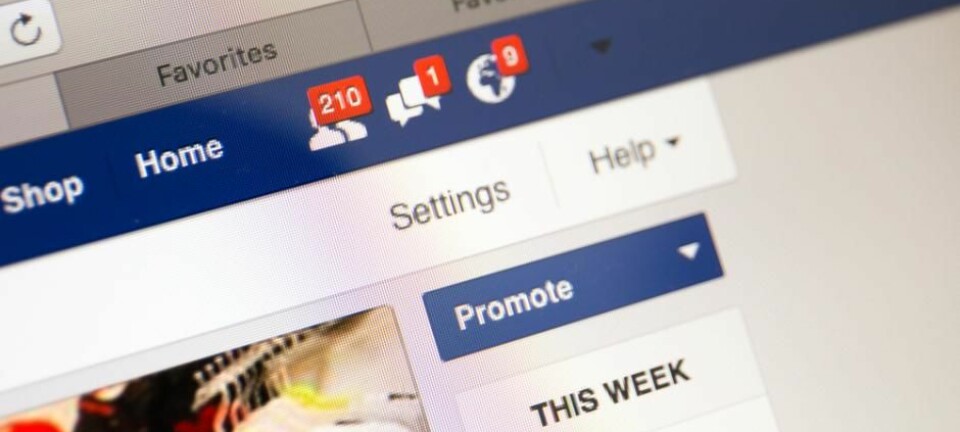
The price of digital citizenship and the forfeit of autonomy
OPINION: What the commoditisation of user information could mean.
According to the most recent projections, the digital giants Facebook and Google are expected to have scooped up half of global digital advertisement revenues in 2017.
What these giants are dealing in, is the exposure and collection of information.
They filter and expose information to the user while they browse sites for friends, articles, political content, or more tangible consumer products covering everything from hygiene products to lawnmowers.
Meanwhile, the users’ interaction with the content is collected and fed to algorithms that build extensive user profiles of preferred content, consumer habits, and so on.
The long-anticipated end product of the digital age, freedom through information, may turn into control through information. Perhaps we are already there.
This simultaneous information gathering and exposure is then leveraged to sell advertising space to companies alongside a promise of connecting their products with exactly those users who are likely to purchase them.
In other words, the digital giants farm their users for information and sell it to companies, and those ads are then exposed to the users, which leads to more detailed user profiles, which are then sold to the companies – rinse and repeat ad infinitum.
Read More: Facebook is not about stimulating Democracy
The market is dominated by a handful of players
The digital market is dominated by a handful of powerful players who – restrained only by lax regulation – control what information is gathered, shared, and who should be exposed to it.
There have been many stories detailing how the giants force up prices or position themselves advantageously when they have rival products.
In 2014, Amazon was criticised for using “aggressive” tactics against French publisher Hachette after the latter refused to give Amazon pricing control over its ebook – a direct competitor to Amazon’s own Kindle ebook.
Amazon responded by limiting user exposure to Hachette products on their site, preventing customers from pre-ordering Hachette titles, reducing discounts, and delaying shipment of some Hachette titles by upwards a month.
And at the moment, Amazon and Google is waging a war of attrition, with Amazon refusing to sell Google products on their site and Google removing user access to their popular YouTube app on Amazon products as a response.
Earlier in 2017, Google was fined 2.42 billion Euros by the European Commission for taking advantage of their market position to boost their own services at the expense of other companies providing similar services.
Read More: In the digital age, the humanities can afford to go on the offensive
We pay with our information and attention
These examples only demonstrate one side of the problem with the formation of monopolies in the digital market.
What about the users? Are they not also being forced to pay more to enjoy the digital products and services?
Yes, they are, but they do so in another currency – they pay in information and attention allocation. And the price for our participation is increasing.
Various apps use profiles from companies like Google or Facebook in order to log on or simply use the app – think of apps such as Tinder, Wordfeud, Wish, or Happen. The latter doesn't even work without access to your Facebook profile.
To use a digital service you have to accept “terms and conditions” or grant access to their cookies, which contain information about the specific user.
The reason for this requirement is that this specific information allows for a better pairing of the right product with the right customer.
It might improve user experience, but it also makes it easier to increase exposure and sale of ads.
Read More: Why looking at social media at work disrupts your concentration
The price of information keeps going up
Surrendering this information allows us to use the service, communicate with friends, and join various digital communities of choice.
Remember the last time you were off the grid for a week? You missed out on so much information and so many invites.
Now consider granting access to – or surrendering – user information as a currency on the digital market, soon enough we end up in a situation like that of Hachette.
Over and over again, access to information has to be granted either due to updates or to security protocols, for example giving your phone number to Facebook.
Users are forced to pay more and more information for the same service. Without much reflection, most of us click “yes”, not realising that we just left the negotiations of the price of our “digital citizenship.”
Read More: Digital knowledge is a poor substitute for learning in the real world
The user is the product
All of this information surrendered by users left and right is gold.
It is used for refining the algorithms designed to “sell” our attention and deciding what kind of information users are exposed to and the target groups to which we belong.
And companies are lining up to pay good money for their ads to reach designated target groups.
When we pay with our information, we do not only hand out tickets to ourselves. We provide Facebook and Google with the tools required to tailor the information that we are exposed to.
We, the users, and our attention, are the primary products on social media.
Read More: How to nudge consumers to make greener choices
Citizenship and autonomy is coming under control
Neither the user, who is paying with information and attention allocation, nor the company, which purchases ads, decide what information or product gets exposure.
That deciding power lies with those selling our attention, the ones who are now enjoying almost monopolistic status.
This leaves very few players with the power to make important decisions: What shall receive attention? Who shall receive attention? And, who shall pay with their attention?
These mechanisms even empower them to decide what and who shall have a spot in the public debate and who is allowed to partake in this debate.
Freedom of expression, self-determination, citizenship, autonomy, and authority are increasingly under control online.
Consequently, the long-anticipated end product of the digital age, freedom through information, may turn into control through information. Perhaps we are already there.










